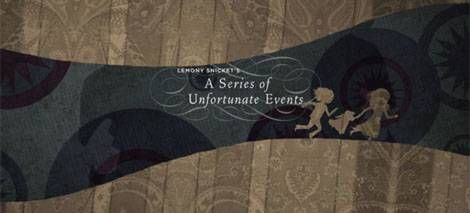
Facing a Trigger: Thoughts on Series of Unfortunate Events
The word “trigger” has become either a laughingstock or an opportunity for discourse. Dictionary.com lists one definition of trigger “trigger” as “anything, as an act or event, that serves as a stimulus and initiates or precipitates a reaction or series of reactions. ”
This month Netflix released a trailer for their adaptation of A Series of Unfortunate Events. Lemony Snicket wrote the original 13-book series which ended in 2006. I loved the series as a kid. The movie with Jim Carrey also won my heart as a teenager, with its bitter humor.
I found a problem, however, when viewing the trailer; I couldn’t finish it. The trailer was technically good. It made me too anxious and triggered a lot of anxiety. I only finished it this morning with the volume muted. Even so, it didn’t feel fun. The joy I felt as a teenager had vanished.
A Series of Unfortunate Events is about three unlucky orphans. The precocious Baudelaires encounter a disgusting relative who wants their fortune. Count Olaf can’t spell or read properly, but he can plot. Thei Baudelaires’ financial advisor Mr. Poe ships them off to unsuitable guardians, while ignoring their concerns. In the meantime Olaf gets the children kicked out of each of their homes. Eventually the Baudelaires realize they can trust no adults, and rely on their special skills to survive. Violet, the oldest, can invent. Klaus, the middle child, can research and remember knowledge. Sunny, the baby, can bite like a snapping turtle.
As a teen, I craved horror and dark literature. Goosebumps had whetted my taste, and I devoured Coraline with delight. A Series of Unfortunate Events provided an entire series of darkness. I followed the series to its conclusion, and enjoyed every moment.
The book series was funnier as a kid. You could buy into the morbid humor, and the Baudelaires’ troubles. They kept suffering, but they also kept trying. At the same time, they learned more about their unfair world, and how to survive in it.
Then for novel research I read about the realities of foster care. Social workers and the news have detailed the frustrating system. Many children are in the Baudelaires’ situation. Sometimes they even suffer in worse ones. Red tape and lack of care from various states lead to constant tragedy. Most of the time, sheer unfairness and people like Count Olaf win. Rereading about the Baudelaires’ trials becomes a sobering reality check, as well as an exercise in anxiety. Accordingly, the work has become a trigger, so that I can’t enjoy Neil Patrick Harris’s performance.
Psychology Today recommends taking several steps by which to handle triggers. These steps include identifying the trigger, and recognizing your reaction as emotional. Adopting such methods invites mindfulness, and the need to become aware. Choosing what you want to feel becomes a work in progress, but an ideally rewarding one.
A person needs to know how to identify a trigger. Triggers cause anxiety, which cause unpleasant feelings. Associations with other events and knowledge appear. We all want to avoid anxiety. Anxiety tightens our chests and turns little events into disaster. We also don’t want to become irritable and terrified. I want to enjoy this series, as a Neil Patrick Harris fan.















